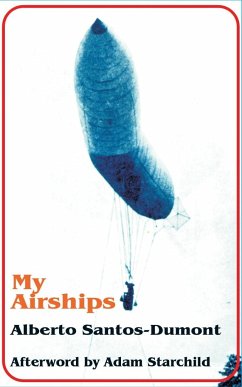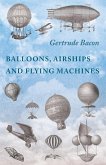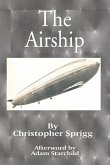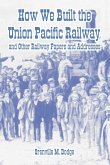Brazilian born, French educated, Alberto Santos-Dumont was probably one of only a few aviation pioneers who could claim significant accomplishments in both lighter-than-air and heavier-than-air flying machines. He was the first man to succeed, not once but time after time, in leaving the ground, flying through the air to a place of his own choosing, and landing safely. Around the turn of the century he was the most prominent of all the early aviators, and his balloons, dirigibles and (later in his career) heavier-than-air craft were frequently to be seen in the air around his beloved city of Paris. His early experiments were in dirigible airships of his own design. After many failures, he built a dirigible that in 1901 won the Deutsch Prize, as well as a prize from the Brazilian government, for being the first to fly in a given time from Saint-Cloud to the Eiffel Tower and return. He wrote My Airships when he was 30 years old, in 1904. In it he tells of his childhood in Brazil, his early fascination with machinery and passion for the novels of Jules Verne, his early success in France as an enthusiastic automobilist, his first balloon ascent in 1893, his famous balloon Brazil, and the joys and trials of his first ten dirigibles (1898-1904). Referring to himself as "inventor, patron, manufacturer, amateur, mechanician and airship captain all united," he describes numerous hair-raising scrapes with death while navigating the air. Santos' reputation as an airplane designer was solidified by a machine he produced in 1909. The famous "Demoiselle" or "Grasshopper" monoplane, was the forerunner of the modern light plane. Santos eventually returned to Brazil where, depressed over the use of aircraft in war, he committed suicide.
Hinweis: Dieser Artikel kann nur an eine deutsche Lieferadresse ausgeliefert werden.
Hinweis: Dieser Artikel kann nur an eine deutsche Lieferadresse ausgeliefert werden.








